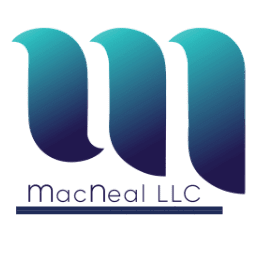Starting a new business is an exciting journey with many opportunities and responsibilities. Tax planning is one of the most important aspects of the startup business process. Proper tax planning can help you save money, avoid expensive mistakes, and focus on growing your business instead of dealing with tax issues.
Here are some tax tips to guide you through this critical aspect of your business.
Keep Accurate Records
Understanding taxes is a part of any business. It is best to assess your company’s financial health and determine the potential for tax savings at the right time. One of the most important things you can do is maintain precise records of all your expenses and income. This will make tax time much more convenient.
Track All Expenses
Ensure you keep receipts and records for all business-related purchases. This includes supplies, travel expenses, and other costs incurred while running your business. A dedicated expense tracker or mobile app can help you keep everything organized on the go.
Use Accounting Software
Consider using accounting software to help you stay organized. Many tools are available that can simplify tracking expenses and income, making it easier to file taxes. QuickBooks, Xero, and FreshBooks are popular options catering to small businesses’ needs.
Separate Personal and Business Finances
Keep your personal and business finances separate to avoid confusion and simplify your tax preparation. A dedicated business bank account can help you track your income and expenses more quickly, making it easier to prepare your taxes. This also helps maintain a clear distinction between your personal and business transactions, which is necessary for accurate financial reporting. Using a business credit card for all business-related expenses can also help streamline your record-keeping and make it easier to identify deductible expenses when tax season arrives.
Choose the Right Business Structure
The way you structure your business significantly impacts your tax responsibilities. Different options, such as sole proprietorship, partnership, LLC, S-Corp, and C-Corp, have tax advantages and disadvantages. It’s best to seek advice from a tax advisor to determine which structure best aligns with your business goals and can provide the most tax benefits.
Address State and Local Taxes
Illinois has a 6.25 percent state sales tax rate, a 4.75 percent maximum local sales tax rate, and an average combined state and local sales tax rate of 8.82 percent. However, these taxes will change according to the business, state, and locality. Understanding and complying with these taxes will help to mitigate risks and explore more planning opportunities.
Explore Tax Credits and Incentives
Tax credits lower the total amount you owe to the IRS on income tax. A deduction lowers your taxable income. Based on the industry you are serving, you can have many benefits. Understanding and leveraging tax credits and incentives can significantly impact your company’s bottom line. Since tax laws change frequently, stay updated to maximize the available benefits. Consulting with an experienced tax professional can help you assess your eligibility, capture the credit, and document your claim.
Consult a Professional
Taxes can be confusing, but you need to handle them appropriately for your startup to flourish. Tax planning can help businesses utilize available opportunities, such as credits and incentives while staying compliant. Experienced tax professionals, like those at MacNeal CPA, can help you navigate taxes and provide valuable advice to benefit your startup.

